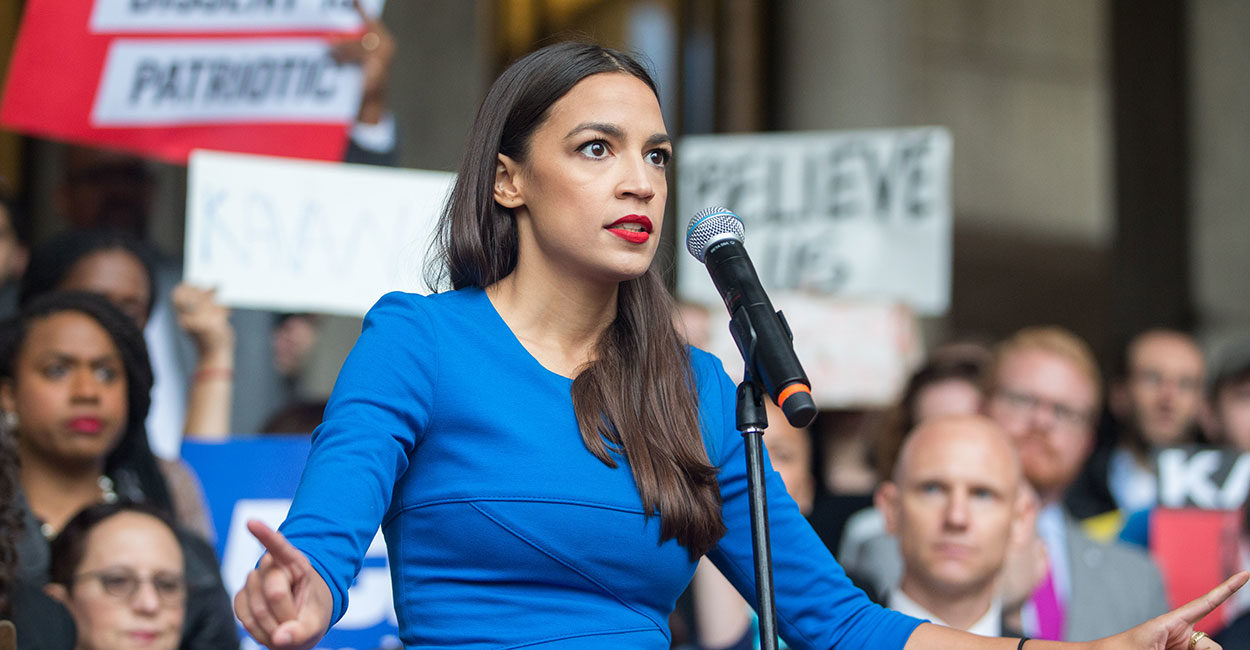By: Tara Ross – dailysignal.com –
Rep. Alexandria Ocasio-Cortez loves to hate on the Electoral College. Once again, she has the nation up in arms about America’s unique presidential election system.
The Electoral College, the New York Democrat said on Instagram last week, is a “scam” that “effectively weighs white voters over voters of color.” Then on Friday afternoon, she doubled down, tweeting that the Electoral College is nothing more than “affirmative action” for rural voters.
In her view, rural areas are too white—and too powerful in presidential elections.
Perhaps Ocasio-Cortez should take a step back in time. Civil rights leaders once had a different view, and they came out in force to argue for the preservation of the Electoral College.
The liberal Left continue to push their radical agenda against American values. The good news is there is a solution. Find out more >>
“Take away the Electoral College, and the importance of that black vote melts away,” National Urban League President Vernon Jordan wrote in 1977. “Blacks, instead of being crucial to victory in major states, simply become 10% of the total electorate, with reduced impact.”
Indeed, Jordan and other civil rights leaders noted benefits of the Electoral College that tend to be ignored today.
First, the winner-take-all allocation of votes in the Electoral College prevents third-party extremists from succeeding at the national level.
In 1968, segregationist Gov. George Wallace of Alabama struggled to make a good showing, even though he had strong regional support. Civil rights leaders at the time noticed—and they even praised his defeat in congressional testimony.
Second, the concentration of black voters in certain large metropolitan areas can be an advantage, at least in some states.
“[T]he real issue,” Jordan told Congress in 1979, “is not only one of how many black voters are located in which states, but where blacks can reasonably expect to build coalitions with other minorities and whites to achieve true justice and equality.”
In other words, shared concerns within urban areas lead to coalition-building. Jordan called this “the empathy factor.” In those parts of the country, coalitions can swing a large metropolitan area—and thus an entire state.
Perhaps New York voters outside of Ocasio-Cortez’s district can feel this pain: Upstate New York voters are constantly outvoted by New York City. Voters in that metropolitan area swing the state’s entire block of 29 electors, regardless of what the state’s rural voters prefer.
Rural New York voters are surely puzzled to hear Ocasio-Cortez describe them as “too powerful.”
Jordan’s testimony must be bewildering to Electoral College defenders who argue that the system gives small states and rural areas a leg up at election time. Who is right?
Somewhat confusingly, both sides are right. Urban areas are not always as powerful as Jordan hoped. They might be able to swing certain states, but they can’t swing the whole country, either.
On the other hand, urban areas aren’t as weak as Ocasio-Cortez says. Rural voters in California, New York, and Illinois would surely testify to that.
In short, the Electoral College creates balance in our political system in many ways—and this unexpected balance of power between urban and rural areas is just one of them.
At the end of the day, charges of racism in our presidential election are simply silly. The Electoral College serves everyone. It does this by creating a careful balance between large states and small, urban areas and rural.
Ultimately, and as a matter of history, the Electoral College rewards those presidential candidates or political parties that do the best job of listening to a wide variety of voters.
Those who decided to double down with their base and ignore the rest of the country usually end up losing. That’s a blessing for everyone in our country.
Recent close elections have come about because everyone keeps forgetting these important underlying purposes of the Electoral College. Many have neglected to build coalitions. Both parties are instead catering to their bases.
Consequently, the first party to reach out to create broad coalitions will also start winning presidential elections in landslides.
Perhaps Jordan summed it up best when he said many years ago that the Electoral College “forces candidates to deal with a broad variety of issues and thus requires a degree of responsibility that direct elections would weaken.”
Here’s hoping that our political parties decide to take his wise advice.
To see this article and others from the Daily Signal, click read more.
Source: No, the Electoral College Is Not ‘Affirmative Action’ for Rural Voters
 Listen Online
Listen Online Watch Online
Watch Online Find a Station in Your Area
Find a Station in Your Area









 Listen Now
Listen Now Watch Online
Watch Online
